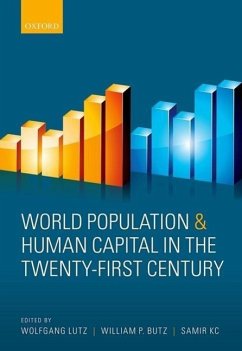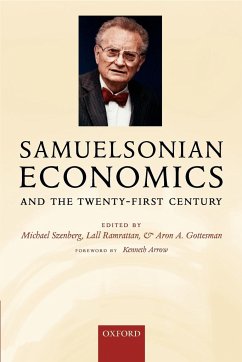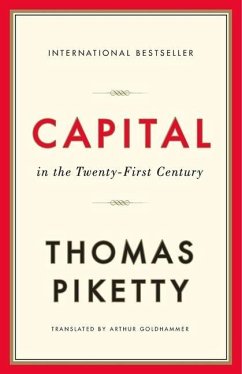
Understanding Piketty's Capital in the Twenty-First Century
Versandkostenfrei!
Versandfertig in 1-2 Wochen
186,99 €
inkl. MwSt.

PAYBACK Punkte
93 °P sammeln!
Thomas Piketty's Capital in the Twenty-First Century reached the top of most best-seller lists last year shortly after it was released. Nonetheless, few people actually read the book. Yet reviewers have agreed that the book is important because it touches on one of the major problems facing the US economy, the UK economy and many developed nations: rising income and wealth inequality. It also provides an explanation of the problem and a policy solution: a global wealth tax. This book is intended to do three things. First, it provides a summary of the argument of Piketty's book, which many peop...
Thomas Piketty's Capital in the Twenty-First Century reached the top of most best-seller lists last year shortly after it was released. Nonetheless, few people actually read the book. Yet reviewers have agreed that the book is important because it touches on one of the major problems facing the US economy, the UK economy and many developed nations: rising income and wealth inequality. It also provides an explanation of the problem and a policy solution: a global wealth tax. This book is intended to do three things. First, it provides a summary of the argument of Piketty's book, which many people have bought and few people have read. Second, it fills in some of the gaps in the book, by providing readers with the background that is needed to understand the volume and the argument. This background information discusses economic data sources, measures of inequality and why income inequality is such an important issue today. Finally, the work provides a defense of Piketty's analysis and at times some criticism of his work. Pressman explains why the problem of rising inequality is important, where Piketty's data comes from, and the strengths and weaknesses of that data. It defends Piketty's inequality, r>g, as the reason inequality has risen over the past several decades in many developed nations. Using Piketty's own data, this book argues that rising inequality is not just a characteristic of capitalism, but results from different growth rates for income and wealth, which can occur under any type of economic system. Understanding Piketty's Capital in the Twenty-First Century is the ideal introduction to one of the most important books of recent years for anyone interested in Piketty's work and the inevitability of inequality.












